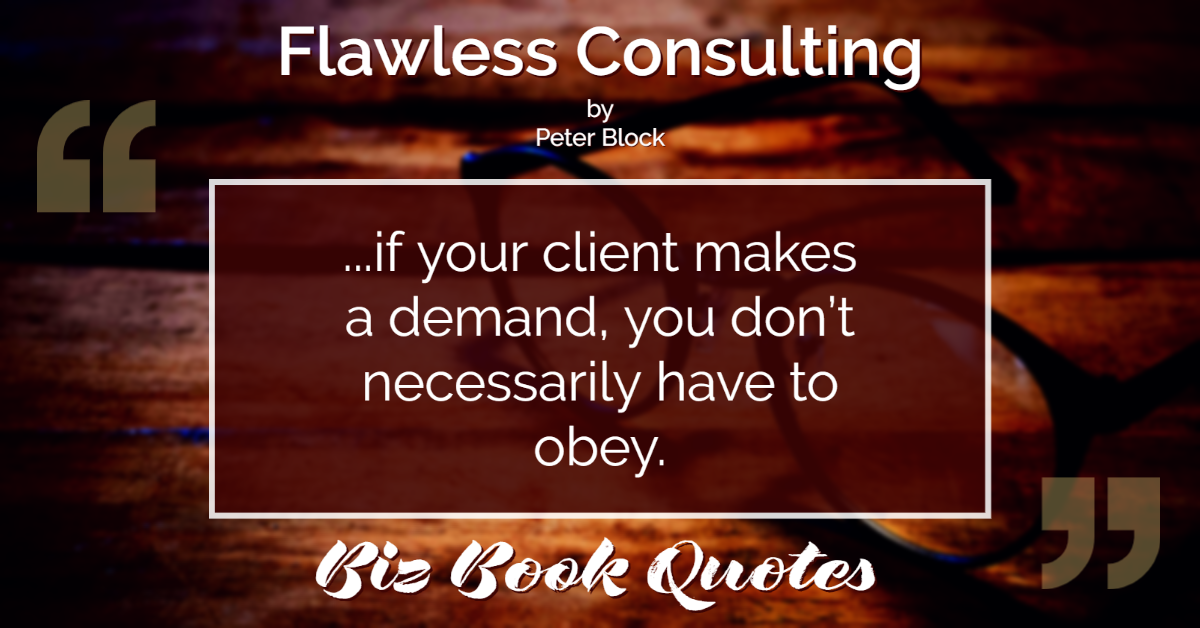 |
…if your client makes a demand, you don’t necessarily have to obey.
|
9 |
 |
The core transaction of any consulting contract is the transfer or expertise from the consultant to the client.
|
28 |
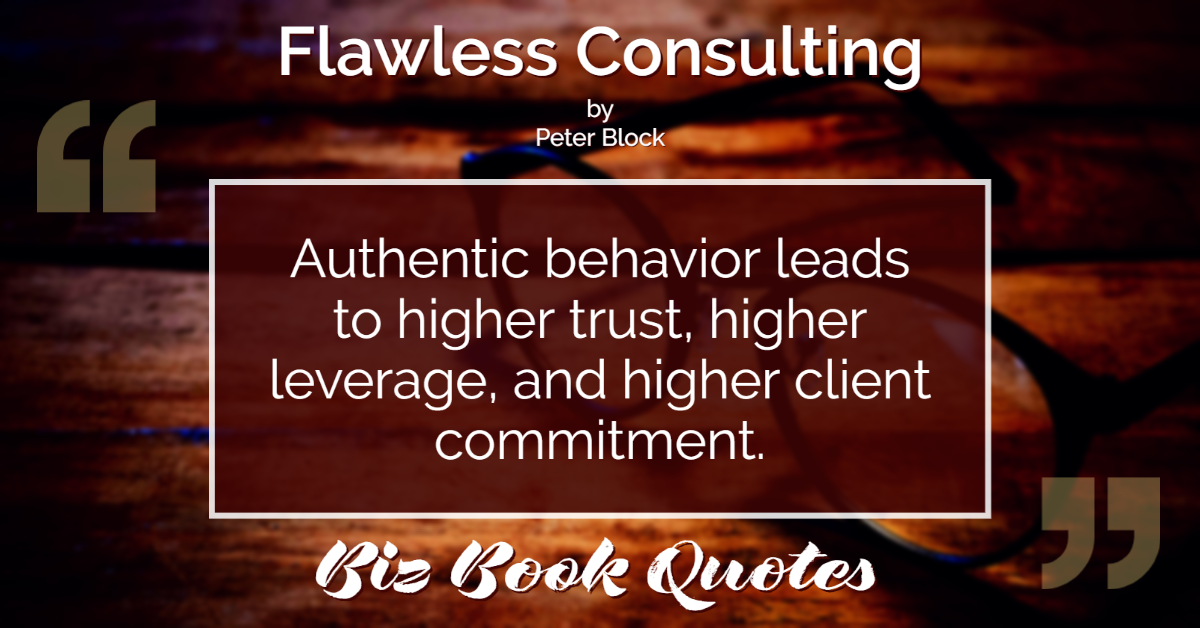 |
Authentic behavior leads to higher trust, higher leverage, and higher client commitment.
|
38 |
 |
Too often consultants understate their wants and clients understate their offers.
|
41 |
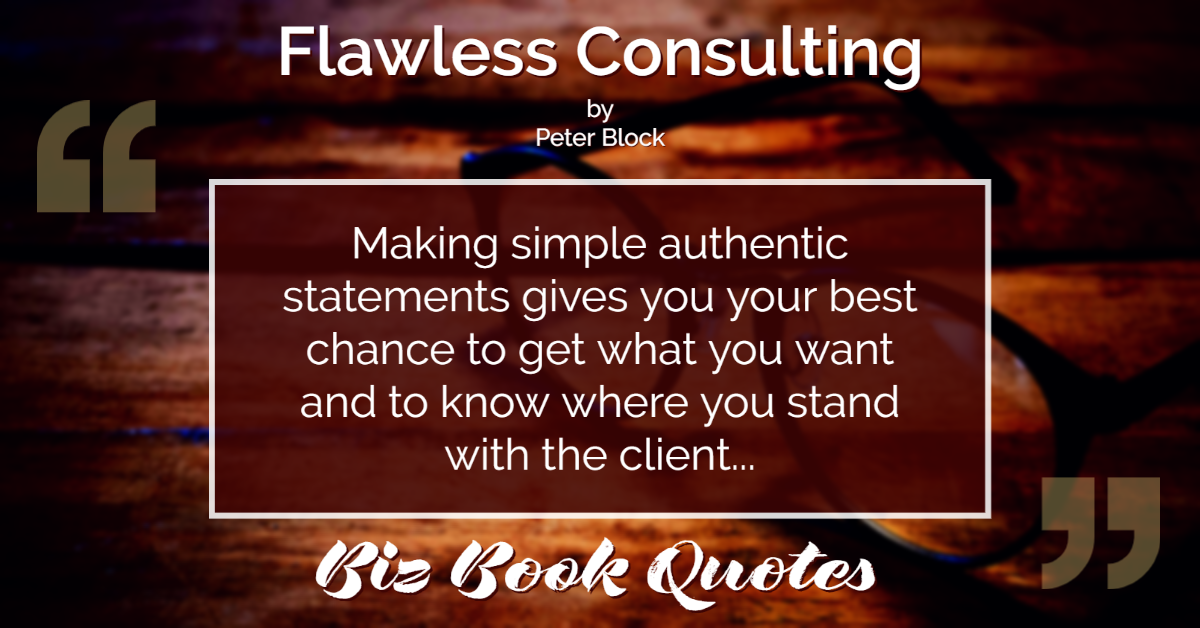 |
Making simple authentic statements gives you your best chance to get what you want and to know where you stand with the client…
|
82 |
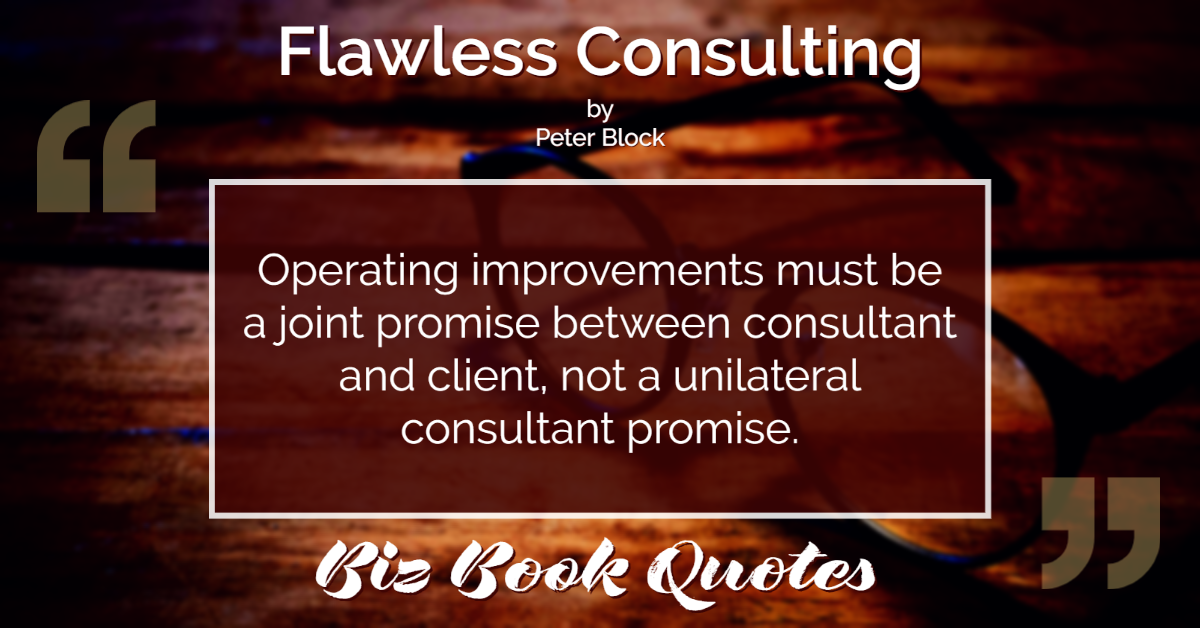 |
Operating improvements must be a joint promise between consultant and client, not a unilateral consultant promise.
|
83 |
 |
…it is in your and the client’s best interests to refuse projects that do not have a reasonable chance for success.
|
95 |
 |
It is much better to lose the sale and maintain a solid relationship with the client than to keep pushing a sale that won’t pan out.
|
101 |
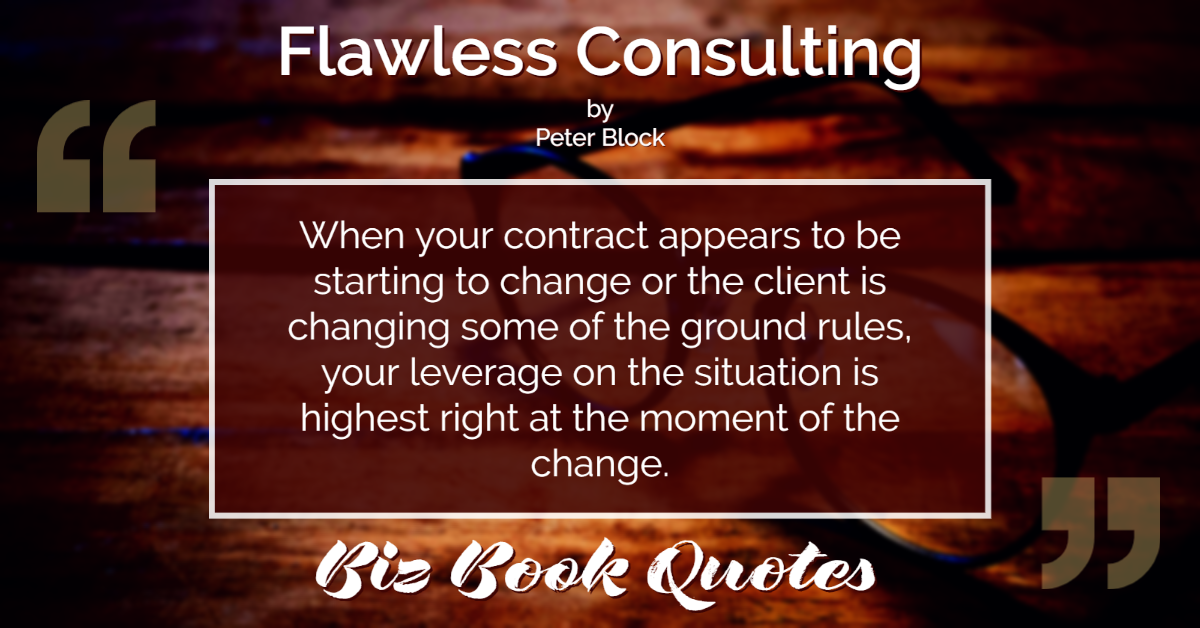 |
When your contract appears to be starting to change or the client is changing some of the ground rules, your leverage on the situation is highest right at the moment of the change.
|
113 |
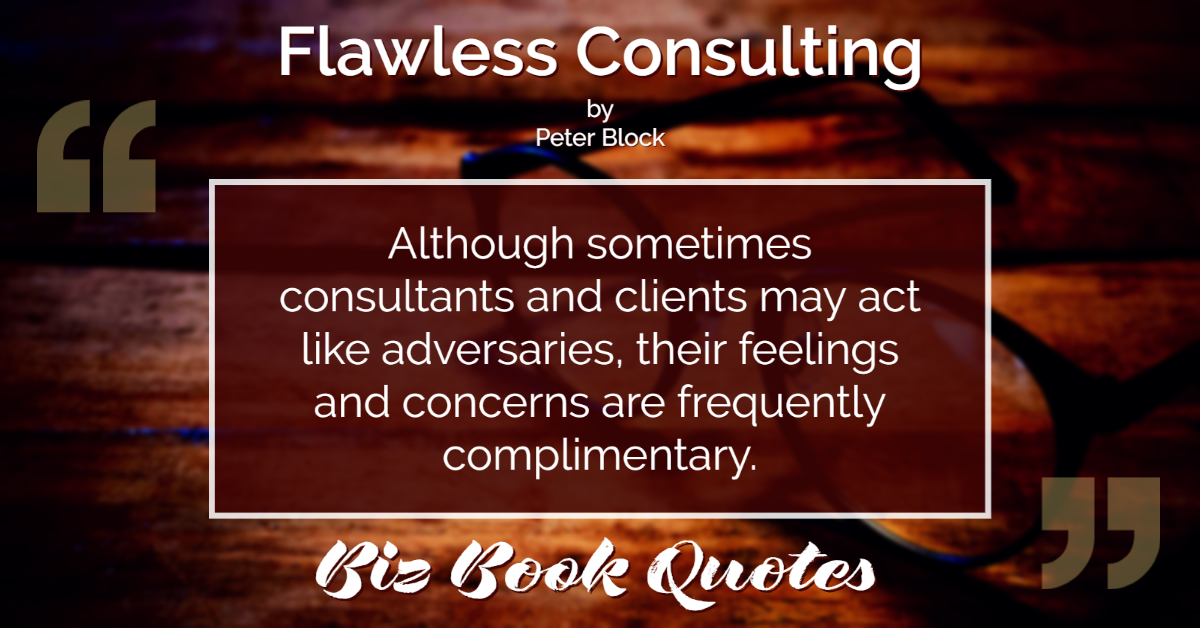 |
Although sometimes consultants and clients may act like adversaries, their feelings and concerns are frequently complimentary.
|
143 |